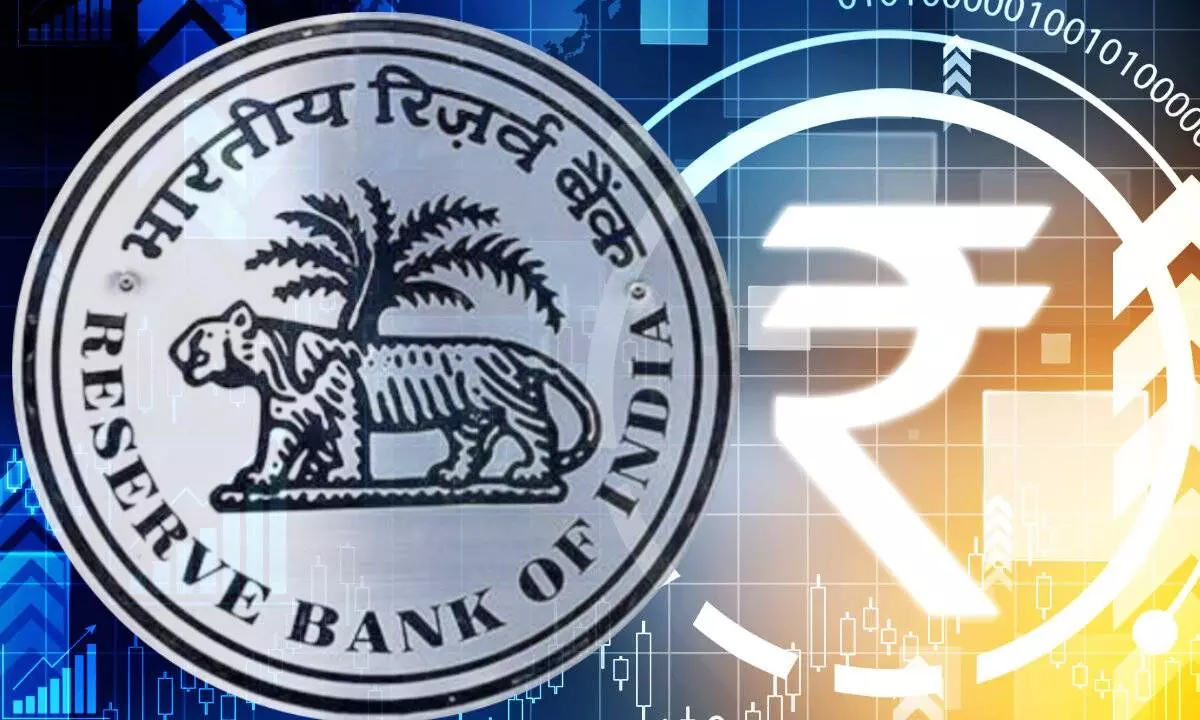Macroeconomic impacts of RBI's CBDC and its use cases is priority, needs discussion
Macroeconomic impacts of RBI’s digital currency or Central Bank Digital Currency (CBDC) and its use cases will be discussed in a priority in the coming days said Ajay Seth, Secretary, of the Department of Economic Affairs, addressing the media on Wednesday post India's first G-20 finance and central bank deputies meeting.
image for illustrative purpose

Macroeconomic impacts of RBI's digital currency or Central Bank Digital Currency (CBDC) and its use cases will be discussed in a priority in the coming days said Ajay Seth, Secretary, of the Department of Economic Affairs, addressing the media on Wednesday post India's first G-20 finance and central bank deputies meeting.
"Along with other topics, the macroeconomic implications of CBDC and its use cases is one the priority to be discussed and worked upon during the year," Seth said. Reserve Bank of India (RBI) launched the pilot for the retail version. The retail digital rupee, or e₹-R, can be used by people for day-to-day transactions.
The G-20 Finance and Central Bank Deputies Meeting, under the Indian Presidency, was held in Bengaluru, Karnataka, during December 13-14, 2022, under the co-chairship of Secretary, Economic Affairs, Ajay Seth and Deputy Governor, Reserve Bank of India, Michael Patra.
The meeting saw a gathering of over 160 foreign delegates including Deputies from G20 member countries, invitee countries, and International Organisations. The meeting was conducted with the aim of seeking the views of G20 members on India's G20 Finance Track priorities for 2023 across various workstreams
The discussions focused on issues relating to the global economy and risks, strengthening Multilateral Development Banks (MDBs), managing global debt vulnerabilities, financing climate action and Sustainable Development Goals (SDGs), and building resilient, inclusive, and sustainable cities of tomorrow.
Seth said that the discussion was divided into seven sessions which included talks on sustainable finance, global public goods, multilateral development banks, international taxation, and crypto Assets
"Lot of views on Crypto assets were expressed. Different countries have taken different approaches as these are borderless assets and borderless technology. Discussions are on how to build consensus for better understanding and better regulation around this asset," Seth added.
A significant part of the Crypto asset discussion includes talks on what impacts it has on the macroeconomic situation and implications on the monetary policy and the banking sector which needs to be studied.
"One of the priorities is put on the table is to help countries build a consensus for a policy approach to the crypto assets," He said.
Addressing the media, the chief economic advisor V Anantha Nageshwaran said that the cost of cross-border remittances and its tax implications were also discussed.
"How much are we paying while making cross-border payments and SME Financing was also discussed. Capacity building within the financial system for enabling SME financing is something we spoke about," Nageshwaran said.
We spoke about financing for SMEs, however, we are showcasing Bengaluru's startup ecosystem.
"In fact tomorrow (Thursday) we have a session where delegates will be meeting some exciting startups, they will be visiting the Indian Institute of Sciences and will see some demonstrations.
In fact, G20 Sherpa Amitabh Kant told that G20 said in December that "India has done some amazing work on startups…we will focus on how the G20 and ultimately the rest of the world can speed up the startup revolution".
Startup 20, a crucial programme for Indian companies, would be India's main area of attention as G20 president, he said.
In the session on International Financial Architecture, delegates deliberated on various issues, including strengthening Multilateral Development Banks (MDBs), and exchanged views on work to be undertaken in 2023 on key topics including global debt distress, capital flows, and global financial safety net.
The deputies discussed the possibility of blended finance for climate and other sustainability funds.
"How do we mobilise and adequate funds for climate financing - We are looking at options like domestic, international, or blended finance route, Seth added.
Substantive discussions were held during the session on International Taxation on the priority areas for 2023, including monitoring the progress of the Two-Pillar Tax Package being developed under the OECD/G20 Inclusive Framework, enhancing tax transparency and multilateral capacity building on taxation, Seth said.
These discussions will pave the way for the First G20 Finance Ministers and Central Bank Governors Meeting which will be held from 23-25 February in Bengaluru, Karnataka.
Invite your friends and family to sign up for MC Tech 3, our daily newsletter that breaks down the biggest tech and startup stories of the day

